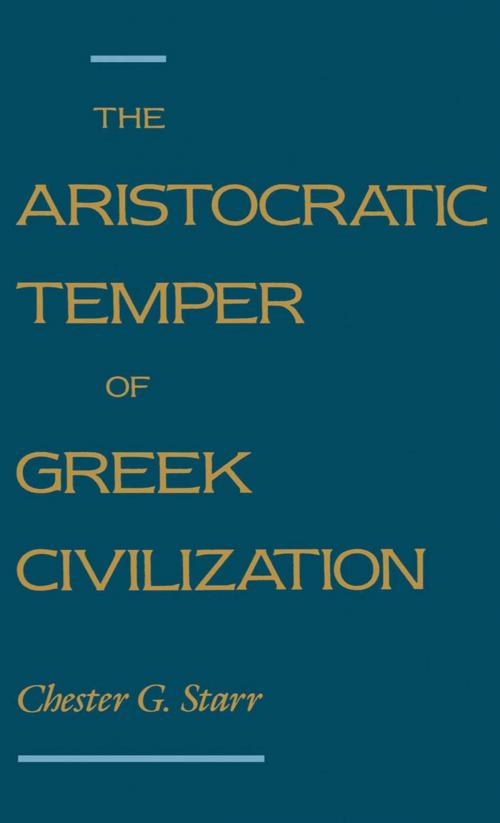The Aristocratic Temper of Greek Civilization
Nonfiction, History, Ancient History, Greece, European General| Author: | Chester G. Starr | ISBN: | 9780190281892 |
| Publisher: | Oxford University Press | Publication: | April 30, 1992 |
| Imprint: | Oxford University Press | Language: | English |
| Author: | Chester G. Starr |
| ISBN: | 9780190281892 |
| Publisher: | Oxford University Press |
| Publication: | April 30, 1992 |
| Imprint: | Oxford University Press |
| Language: | English |
A timely reassessment of the vital social, cultural, and political role of the aristocrat in Greek society, this book by distinguished historian Chester G. Starr provides a concise portrait of the upper classes and their way of life. Arguing that the influence of the aristocrat on ancient Hellenic civilizatioln is undervalued by both modern Western and Marxist scholars, Starr takes a close look at the social spectrum of ancient Greece, examining the consequences of the aristocrats' domination of the ancient polis, their involvement in and patronage of the arts, and their impact on the structure of religion and on the ancient Greeks' visual perception of their pantheon of gods. In a final chapter, Starr concludes that the influence of the aristocratic ideal did not end when ancient civilization flickered out, but rather was reborn in the Renaissance and has had powerful effect on the course of modern Western history.
A timely reassessment of the vital social, cultural, and political role of the aristocrat in Greek society, this book by distinguished historian Chester G. Starr provides a concise portrait of the upper classes and their way of life. Arguing that the influence of the aristocrat on ancient Hellenic civilizatioln is undervalued by both modern Western and Marxist scholars, Starr takes a close look at the social spectrum of ancient Greece, examining the consequences of the aristocrats' domination of the ancient polis, their involvement in and patronage of the arts, and their impact on the structure of religion and on the ancient Greeks' visual perception of their pantheon of gods. In a final chapter, Starr concludes that the influence of the aristocratic ideal did not end when ancient civilization flickered out, but rather was reborn in the Renaissance and has had powerful effect on the course of modern Western history.















